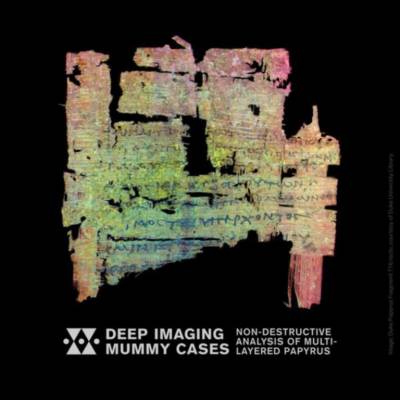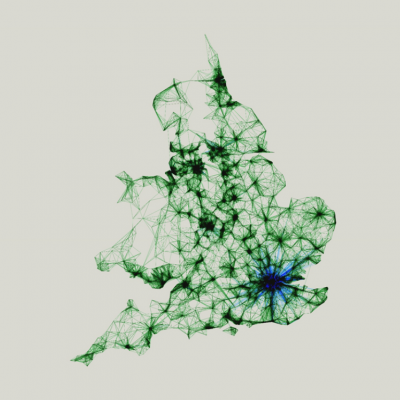These compute resources are available for use by UCL researchers from all faculties. Information about UCL's major research equipment and facilities can also be found online in the UCL Research Equipment Catalogue.
- Legion
Legion is a centrally funded computing facility aimed at supporting all types of research at UCL. The heterogeneous architecture means that many different types of computational tasks are supported by a common infrastructure and software stack that can adapt quickly in response to the demands of the research community. Flexibility is key to Legion's design, allowing for continual evolution of the system to keep pace with advances in technology. Contact: rc-support@ucl.ac.uk
- Grace
Grace was launched at the end of 2015 and is designed to take care of large parallel computing tasks. It is designed specifically for this purpose with a high speed Infiniband network linking together its compute nodes, allowing them to coordinate effort on a single task very effectively. By sharing a software stack with Legion, it is relatively simple for researchers to scale up their work to run on Grace. Contact: rc-support@ucl.ac.uk
- Data Safe Haven
The use of sensitive, person identifiable data (PID) is integral many research projects and it is essential to ensure that it is managed in a way that meets legal requirements and provides adequate assurance to partner organizations and research subjects.
The SLMS Data Safe Haven (IDHS) is a technical environment for receiving, handling and storing sensitive data securely which has been certified to the ISO27001 standard and conforms to the NHS IG Toolkit
Contact: slms.pid@ucl.ac.uk
- Jill Dando Institute Research Laboratory (JDIRL)
The Jill Dando Institute Research Laboratory (JDIRL) is a state-of-the-art secure data facility, the first of its kind at a university in Europe. The JDIRL is a Police Assured Secure Facility for the storage of confidential data, accredited by London's Metropolitan Police Service.
The Lab hosts confidential police data and a range of other sensitive data-sets, for the purposes of research and analysis. These include large data sets from the Metropolitan and other UK police forces, giving details of crime and policing at a disaggregate level, as well as commercially sensitive data from companies, provided for high profile research projects funded by UK Research Councils.
The facility is open to all UCL researchers including staff, PhD students and Masters students. The facility is also open to non-UCL researchers, and to external private and public sector researchers. All users of the lab must be vetted to an appropriate level and we can ensure researchers and staff are vetted to an appropriate level through professional security clearance agencies. To arrange a supervised visit to the facility please contact the UCL Department of Security and Crime Science by emailing jdirl-admin@ucl.ac.uk.
- MRC eMedLab compute and storage cluster
eMedLab is a high performance computing cluster will allow scientists to analyse human genome data and medical images, together with clinical and other physiological and social data, for the benefit of human health.
The collaborative resource will be shared by UCL, Queen Mary University London, London School of Hygiene & Tropical Medicine, the Francis Crick Institute, Wellcome Trust Sanger Institute and the European Bioinformatics Institute.
Contact david.wong@ucl.ac.uk, J.pallas@ucl.ac.uk
- UCL Digitisation Suite
The digitisation suite is a joint endeavor between UCL Faculty of Arts and Humanities, UCL Faculty of Engineering Sciences, and UCL Library Services. Support for teaching and training is provided by UCL Department of Information Studies, and IT support is generously provided by the UCL Department of Computer Science. The main aim of the suite is to provide a space in which people can learn, research, and experiment with digitisation technologies.
The suite is fully set up with state of the art capture for both 2D and 3D objects. We have a range of cameras, flat bed scanners, microfilm and microfiche digitization facilities, a 3D scanner, and facilities to convert audio and video to digital formats. These facilities are available for taught courses, such as the Introduction to Digitisation module in UCLDIS, and are regularly used by PhD students and researchers working in this area.
Access to the suite is prioritized for those connected with UCLDH and the faculties and departments that have contributed to the facility. Training is needed before being allowed to access the suite without supervision (the costs of which have to covered by those requiring training). For any queries on how to access this facility please contact the Coordinator of UCL Centre for Digital Humanities, on lucy.stagg@ucl.ac.uk.
- VRLab (CAVE-hybrid) Immersive Virtual Environments Laboratory
The UCL ReaCTor system consists of 4 projection surfaces; the front, left and right walls are back-projected acrylic screens while the painted wooden floor is projected from above. The screens are seamlessly joined to provide a continuous projection surface. Only the top and the rear faces of the cube are not projection surfaces. In addition to the near-surround visual display, 8 speakers (one at each corner of the cube) plus a separate sub-woofer provide spatialised sound. Contact: David Swapp d.swapp@ucl.ac.uk
- Myriad
Myriad was launched in 2018 as a solution for data-intensive workloads. It is a high-I/O, high-throughput cluster and it is suitable for jobs that will run within a single node rather than multi-node parallel jobs. For access please contact rc-support@ucl.ac.uk
If your school or departmental compute infrastructure is open for use by other UCL researchers and you would like it included on this page please contact us.
 Close
Close



